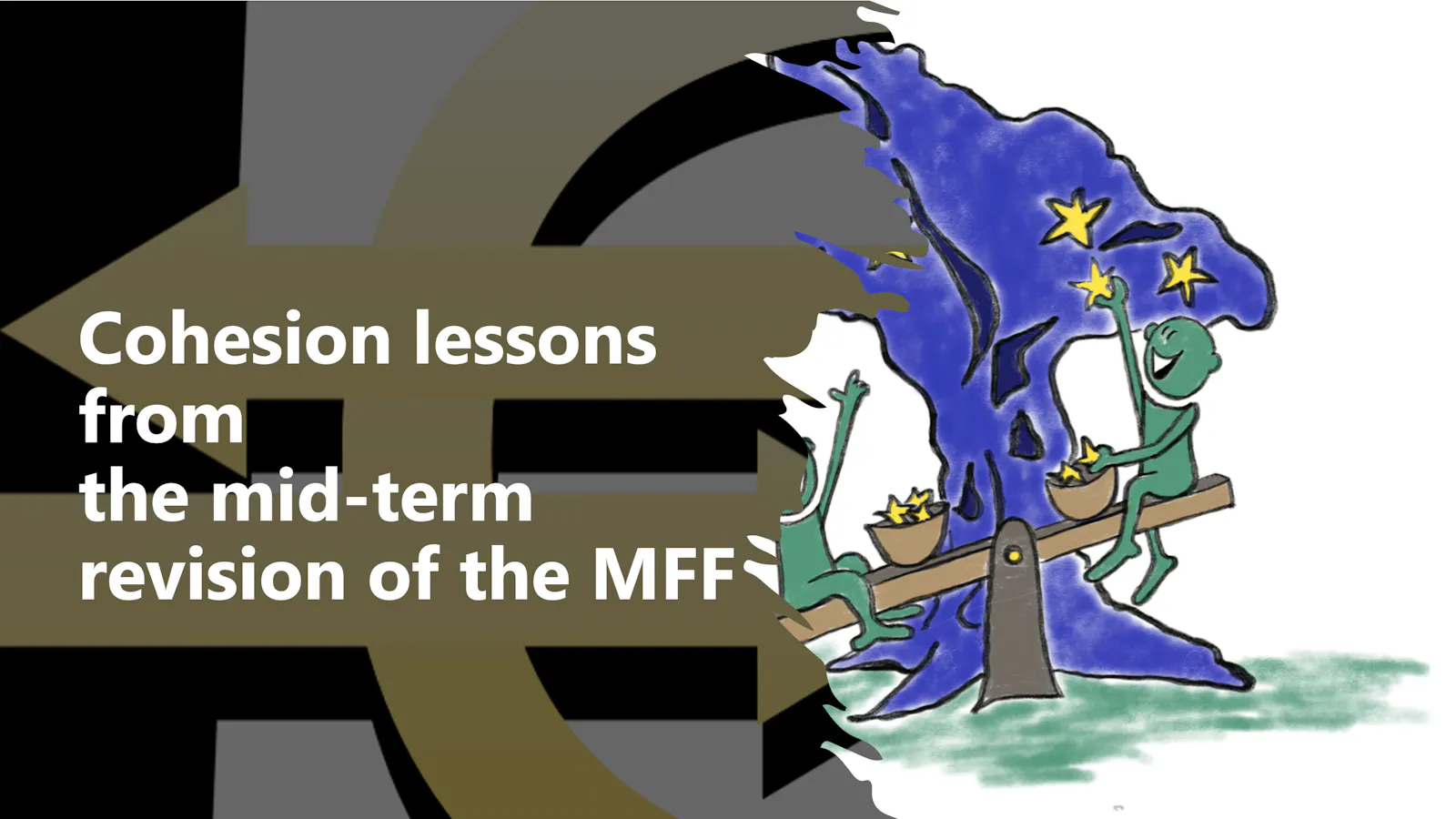Cohesion lessons from the mid-term revision of the EU multiannual financial framework
July 2023

In late June 2023, the European Commission published the ‘Mid-term revision of the multiannual financial framework 2021-2027 (S'ouvre dans une nouvelle fenêtre)’. As for cohesion policy, the mid-term revision highlights some home-made problems. The risk is, however, that one draws misleading lessons from the analysis presented in the mid-term revision.
A possible conclusion might be: During the pandemic and in response to Russia’s war on Ukraine, cohesion policy funding has been effectively channelled to emergency measures and responses to migration and energy crises. This implied that funding for investments in structural change has been used to meet emergencies. Furthermore, cohesion policy has been slow in absorbing the available funding for the first years of the 2021-2027 period and risks decommitment. So, despite less money used for investments in structural change, the money available has not been used. An overhastily conclusion might be that cohesion policy funding for investments in structural change is no longer needed. This would, however, be a wrong conclusion, as the reasons for these observations lie elsewhere.
Cohesion policy was essential for crises responses
In line with various previous studies, the mid-term revision underlines how important cohesion policy has been to respond to the various crises Europe faced lately. Indeed, to respond to the crises a range of initiatives and funding instruments have been developed, often making use of unspent funds of the cohesion policy 2014-2020 period, some also bringing new funding.
To read this post you'll need to become a member. Members help us fund our work to ensure we can stick around long-term.
See our plans (S'ouvre dans une nouvelle fenêtre)
Déjà membre ? Connexion (S'ouvre dans une nouvelle fenêtre)


